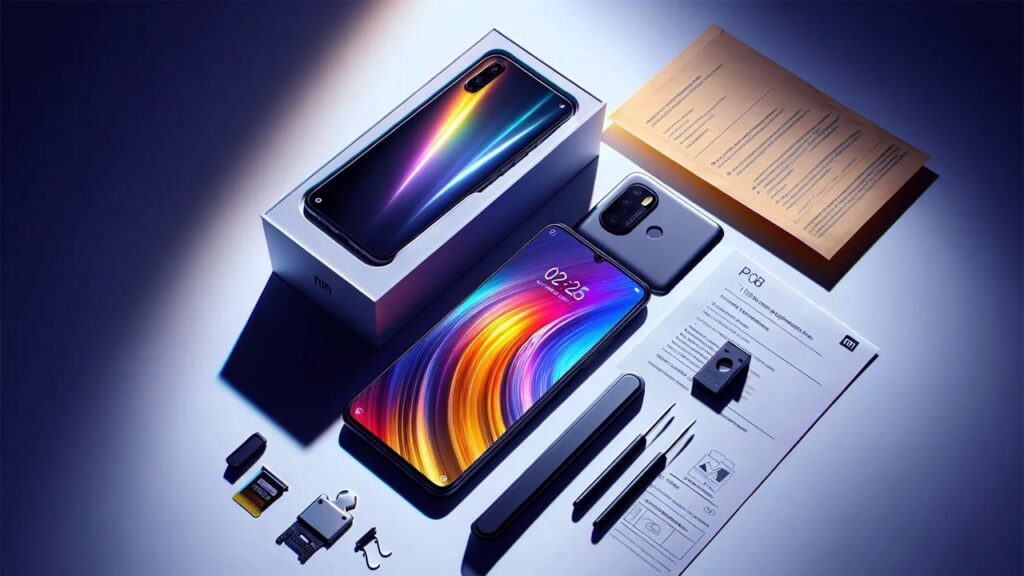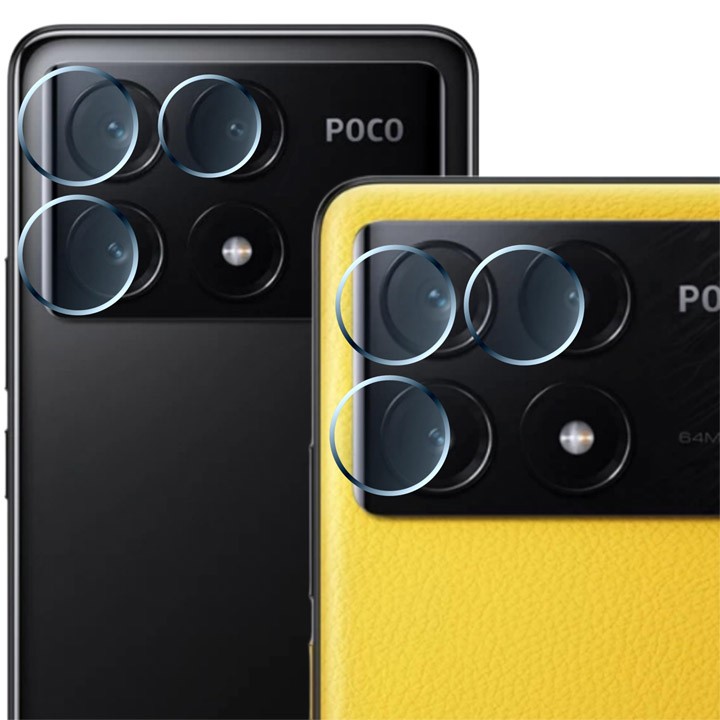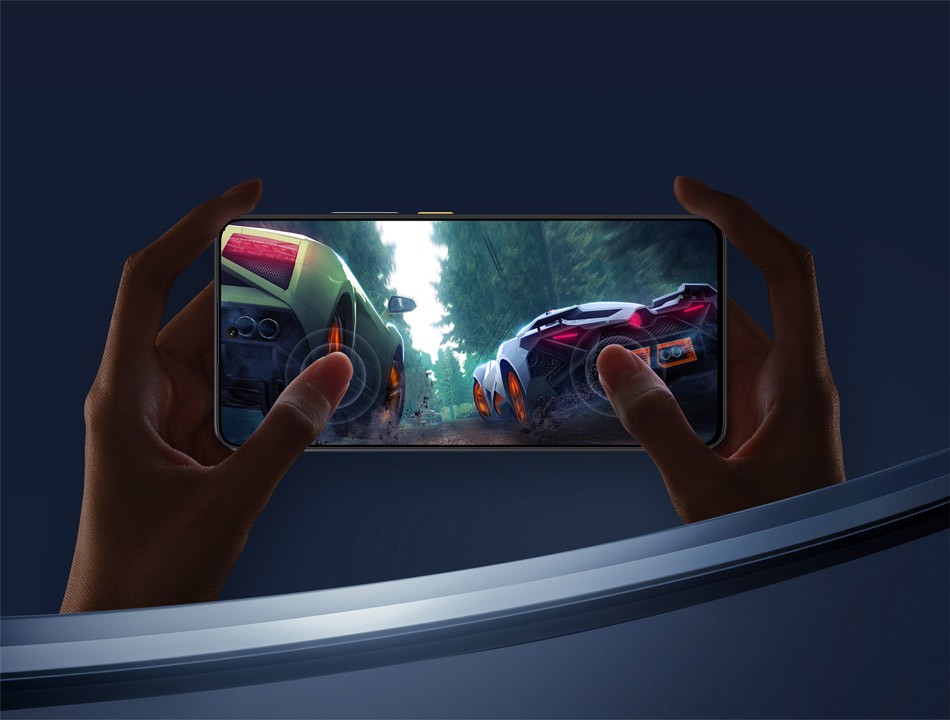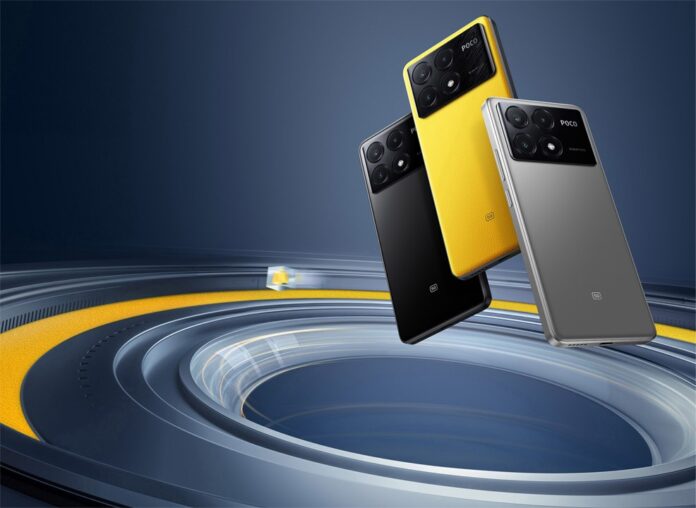The POCO X5 Pro (review), released last year, was an intriguing gaming choice, but it felt like an iterative upgrade to me. However, its replacement, the X6 Pro, tells a different story. While the handset shares certain similarities with its predecessor, it has numerous notable upgrades. The smartphone features a new chipset as well as updated software. Furthermore, the display has received a few changes to improve the overall gaming experience.
Xiaomi’s Poco sub-brand is recognized for producing powerful mid-range smartphones at unbelievable pricing. With the new Poco X6 Pro, the trend continues. This device has real horsepower and a great design, all for £369.
There are plenty of firsts to be thrilled about here. It’s the first model we’ve tested with MediaTek’s Dimensity 8300-Ultra processor, as well as the first to launch with Xiaomi’s new HyperOS operating system.
Price when reviewed: €405.00 | Check price at Amazon
POCO X6 Pro KEY FEATURES
An entire family of Pocos arrived at our door all at once, and this is the best of the bunch: the X6 Pro. The newest X Pro includes a strong Mediatek CPU, a vivid OLED display, and rapid charging. It also comes with Xiaomi’s brand new HyperOS on top of Android 14.
Returning to the Poco X6 Pro, we have a 6.67-inch OLED display with up to 1,200nits of brightness (1,800 in some situations), Dolby Vision support, and higher-than-average resolution. The Dimensity 8300 Ultra, which powers the Poco, stands on the threshold between midrange and flagship silicon and promises plenty of performance. Meanwhile, the new Android overlay’s updated looks provide a fresh take on the MIUI, which is popular among many.
One obvious difference between the Poco and its Chinese Redmi counterpart is battery capacity, with the X6 Pro-rated at 5,000mAh vs the K70E’s 5,500mAh. A 67W charging capability is another tiny reduction in the journey from China to the rest of the globe (90W on the Redmi), but we still expect strong results from this one.
The camera system isn’t particularly exciting, but we’re still hoping to be pleasantly pleased by the generally average technology. A 64MP main camera is accompanied by a modest 8MP ultrawide and a 2MP macro sidekick; if the primary can achieve 2x zoom with any degree of success, it may be a decent showing.
Pros
- Striking design
- Impressive display
- Powerful performance
Cons
- UI needs refinement
- Cameras could have been better
POCO X6 PRO UNBOXING
The X6 Pro comes in a standard black and yellow cardboard box. Aside from the phone, you receive a soft silicone protective cover, a 67W charger, and a USB-A-to-C connection.

CAMERA
As is common with phones at this price range, we get a good primary and selfie camera, as well as the conventional and uninspiring 8MP ultrawide and 2MP macro combination.
These auxiliary lenses do not meet the standards set by the other cameras and should be avoided for the most part. The ultrawide has its uses, but the details are murky and won’t hold up to close examination, and the macro is just too low-resolution to be considered in most scenarios.
However, the main camera is of high quality. There is a lot of detail, the colors look realistic, and the HDR effect is more natural than we’ve seen on other devices. Portrait mode also works well; the subject cutouts are pretty accurate, and the background blur isn’t overwhelming.

The Poco camera app also allows you to shoot at 2x, but this is not a second lens; rather, it is a digital crop of the high-resolution primary sensor. Despite this, the photographs seem better than I expected. There is a lot of detail kept, and you may get really useful photographs out of it.
The Poco camera app also allows you to shoot at 2x, but this is not a second lens; rather, it is a digital crop of the high-resolution primary sensor. Despite this, the photographs seem better than I expected. There is a lot of detail kept, and you may get really useful photographs out of it.
The 16MP selfie camera is somewhat hit-and-miss. I was really happy with some of the photographs it captured, but more of them were slightly out of focus or had motion blur than I am used to seeing. It’s a fixed-focus camera, and it feels like you have to be attentive to stand in the right location to obtain the best pictures.
In terms of video, the main camera can shoot at up to 4K 30fps, while the selfie camera can only shoot at 1080p 60fps. The video quality is decent, and the stabilization works well for panning shots, however, there is some jitter while walking, which is worse at night. Still, it outperforms the video stabilization on the similarly priced Honor Magic 6 Lite.
DESIGN AND SCREEN
The POCO X6 Pro’s design is similar to that of the X4 Pro, which was released a few years back. The handset has a big camera design, which adds to its overall appeal and sets it apart from the throng. The module is black in all models, giving the gadget a sleek dual-tone look. Furthermore, the module protrudes from the surface, reducing shaking when the phone is placed flat on a surface. To ensure a smooth fit, the edges of the deco are curved to prevent any unwanted rub-offs when holding the device.
The camera module includes four camera rings and an LED flash. There are also the words ‘POCO’ and ’64MP OIS’ inscribed on it. I received the ‘Racing Grey’ color version for review, which features a glastic black finish that attracts fingerprints and smudges. The good news is that POCO includes a high-quality TPU case with the device. This not only prevents fingerprints but also improves the phone’s overall appearance and protects against minor drops and falls.

Aside from this, the POCO X6 Pro has a USB Type-C connection for charging and data transfer. The phone has dual-speaker output with Dolby Atmos, which provides loud and precise audio. While the device lacks a 3.5mm headphone connector, it does enable high-resolution audio for a better listening experience with wireless earbuds. For security, the smartphone includes an in-display fingerprint scanner for quick and safe unlocking.
The POCO X6 Pro’s display is a small improvement over its predecessor, the X5 Pro. The handset features a 6.67-inch AMOLED display with an adaptive refresh rate (up to 120Hz), 1,800 nits peak brightness, Dolby Vision, HDR10+, and a 100% broad color gamut. Furthermore, the display has ultra-thin bezels, Corning Gorilla Glass 5 protection, and a small punch-hole configuration for the selfie camera.
The viewing experience is equally excellent as the specifications. The color reproduction on the POCO X6 Pro is comparable to other smartphones in the market. Furthermore, it produces an excellent contrast ratio and amazing viewing angles, ranking the device among the more costly smartphones available. The brightness is also respectable for a mid-ranger, providing excellent outdoor visibility even in intense sunshine. The Dolby Vision and HDR10+ support, which are accessible on services like Netflix, enhances the viewing experience while watching compatible TV series and movies.
The business also refers to it as a ‘wet touch display’, which is intended to reduce false touches generated by sweat while gaming or exposure to water. We tested it with little drops of water on the screen, and it functioned seamlessly. We do not recommend exposing it to severe rain, though, because the handset is only IP54-rated.
HOW’S THE PERFORMANCE?
The MediaTek Dimensity 8300-Ultra processor is incredibly powerful, and our graphics benchmark results show that the Poco X6 Pro can compete with flagships from a year or two ago. When compared to comparable-priced competitors, it easily ranks at the top of the list.
In practice, this means it’s a pleasure to use daily. Even when multitasking heavily, I never felt it to be lacking in performance. It’s always snappy and responsive, and apps launch quickly.
When it comes to gaming, the Poco X6 Pro continues to impress. I played a lot of Genshin Impact on high settings at 60 fps, and the X6 Pro handled it flawlessly. It got a little warm after about 20 minutes, but it never felt unpleasant, and the frames were steady throughout.
There’s also a simple game overlay integrated into the operating system that, by default, frees up RAM and optimizes things when you launch a game. It isn’t the most extensive collection of features when compared to a dedicated gaming handset like the RedMagic 9 Pro, but it’s sufficient to get your games running smoothly. It also has a voice changer so you may annoy your opponents while remaining completely anonymous.
The Poco X6 Pro is one of the few phones in this price range that has dual speakers, which I like. The speakers aren’t going to blow your socks off; there’s a noticeable lack of bass, and they’re far from the loudest I’ve heard, but they’re significantly superior to any mono speaker arrangement.
Buy it if...
- Great display: sharp, and bright, with a high refresh rate and Dolby Vision support.
- Charging speed near the top of the class.
- HyperOS introduces some exciting new features to liven up the old MIUI.
- Outstanding performance in the market segment.
- Excellent results from the main camera in good light, particularly at night.
Don't buy it if…
- The shiny black back is a fingerprint nightmare.
- IP54 is good, but several competitors offer superior dust and water protection.
- Video stabilization isn’t fantastic, and the 8MP ultrawide lacks the pixels needed for 4K filming.
FULL SPECIFICATION
Network | Technology | GSM / HSPA / LTE / 5G |
Launch | Announced | 2024, January 11 |
Status | Available. Released 2024, January 12 | |
Body | Dimensions | 160.5 x 74.3 x 8.3 mm (6.32 x 2.93 x 0.33 in) |
Weight | 186 g or 190 g (6.56 oz) | |
Build | Glass front (Gorilla Glass 5), plastic back or silicone polymer back (eco leather) | |
SIM | Dual SIM (Nano-SIM, dual stand-by) | |
IP54, dust and splash resistant | ||
Display | Type | AMOLED, 68B colors, 120Hz, HDR10+, Dolby Vision, 500 nits (typ), 1200 nits (HBM), 1800 nits (peak) |
Size | 6.67 inches, 107.4 cm2 (~90.1% screen-to-body ratio) | |
Resolution | 1220 x 2712 pixels, 20:9 ratio (~446 ppi density) | |
Protection | Corning Gorilla Glass 5 | |
Platform | OS | Android 14, HyperOS |
Chipset | Mediatek Dimensity 8300 Ultra (4 nm) | |
CPU | Octa-core (1×3.35 GHz Cortex-A715 & 3×3.20 GHz Cortex-A715 & 4×2.20 GHz Cortex-A510) | |
GPU | Mali G615-MC6 | |
Memory | Card slot | No |
Internal | 256GB 8GB RAM, 256GB 12GB RAM, 512GB 12GB RAM | |
UFS 4.0 | ||
Main Camera | Triple | 64 MP, f/1.7, 25mm (wide), 0.7µm, PDAF, OIS 8 MP, f/2.2, 120˚ (ultrawide) 2 MP, f/2.4, (macro) |
Features | LED flash, HDR, panorama | |
Video | 4K@24/30fps, 1080p@30/60fps, gyro-EIS | |
Selfie camera | Single | 16 MP, f/2.4, (wide), 1/3.06″, 1.0µm |
Features | HDR, panorama | |
Video | 1080p@30/60fps | |
Sound | Loudspeaker | Yes, with dual speakers |
3.5mm jack | No | |
24-bit/192kHz Hi-Res & Hi-Res Wireless audio | ||
Comms | WLAN | Wi-Fi 802.11 a/b/g/n/ac/6, dual-band, Wi-Fi Direct |
Bluetooth | 5.4, A2DP, LE | |
Positioning | GPS, GALILEO, GLONASS, QZSS, BDS (B1I+B1c) | |
NFC | Yes (market/region dependent) | |
Infrared port | Yes | |
Radio | No | |
USB | USB Type-C 2.0, OTG | |
Features | Sensors | Fingerprint (under display, optical), accelerometer, gyro, compass |
Virtual proximity sensing | ||
Battery | Type | 5000 mAh, non-removable |
Charging | 67W wired, 100% in 45 min (advertised) | |
Misc | Colors | Black, Yellow, Gray |
Models | 2311DRK48G, 2311DRK48I |


